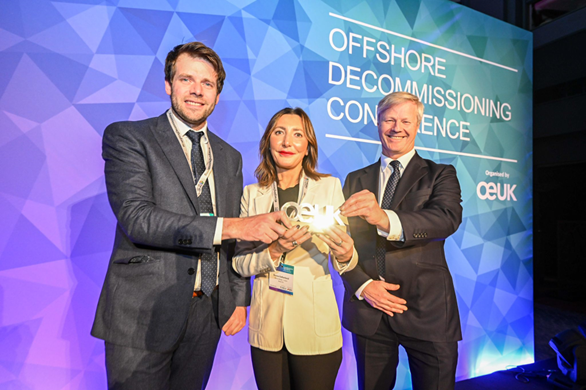Trade body says it’s time to reframe debate on energy to boost jobs, grow economy, cut emissions, and secure supplies.
The leading trade body for the offshore energy sector, Offshore Energies UK (OEUK), has today hailed the UK Government’s decision to approve the new Rosebank oil and gas field.
At its peak, Rosebank could produce 69,000 barrels of oil (9,000 tonnes) per day – equivalent to 8% of the UK’s entire output between 2026 and 2030. It could also produce in excess of 21 MMSCF of natural gas every day, equivalent to the daily average use of Aberdeen city.
According to an independent socioeconomic report by Wood Mackenzie and Voar Energy, Rosebank is estimated to create £8.1 billion of total direct investment over the lifetime of the field, of which 78% is likely to be invested in UK-based businesses. Rosebank will also have a major impact on local supply chains, with 1,600 jobs estimated to be directly employed in the development of the project at the height of the construction phase.
OEUK says although the approval marks an important milestone in the UK’s energy reform, over its lifetime Rosebank will only meet eight months’ worth of UK demand, meaning more projects will be needed to manage reliance on imported oil and gas as UK production declines.
OEUK’s warning comes after its recent economic report found £100 billion of investment in offshore energy this decade is yet to be approved, and a recent offshore wind auction attracted no bidders, because businesses need to feel more confident in the UK’s long-term energy policies to sign off.
The organisation’s chief executive David Whitehouse said the UK must reframe the energy debate from what it must stop to what it must start if is to boost jobs, grow the economy and supply the UK with the energy it needs as we ramp up renewables.
CEO David Whitehouse said:
“This is good news for our jobs, our economy, and our secure energy future. By promoting homegrown production, we avoid costlier, higher carbon imports while making more reliable supplies of energy in the UK, for the UK. We need more projects like Rosebank if we are serious about delivering a homegrown UK energy future.
“We have around 283 fields in the North Sea, but over 180 of those will stop producing within the next decade. If these are not replaced, we will import 80 percent of the oil and gas the UK will need at a higher cost to the consumer, our economy, and ultimately the climate.
“Imported energy cost the UK £117bn last year. That’s a lot of money spent supporting the economies of other producing countries. Surely, with our industry committed to eliminating emissions, it makes sense to prioritise our own domestic production and jobs.
“This is a boost to UK offshore energy supply chain companies. The bulk of companies investing in opportunities like floating offshore wind, hydrogen, carbon capture and storage and decarbonising our economy require the cashflow from a stable and predictable oil and gas business to fund these opportunities.
“Our latest Economic Report found £35 billion could be spent in the next decade on offshore oil and gas projects, but businesses need renewed certainty to sign off. This announcement is a step in the right direction, but more needs to be done to secure the private investment that underpins the jobs for our homegrown energy future.”
Share this article



